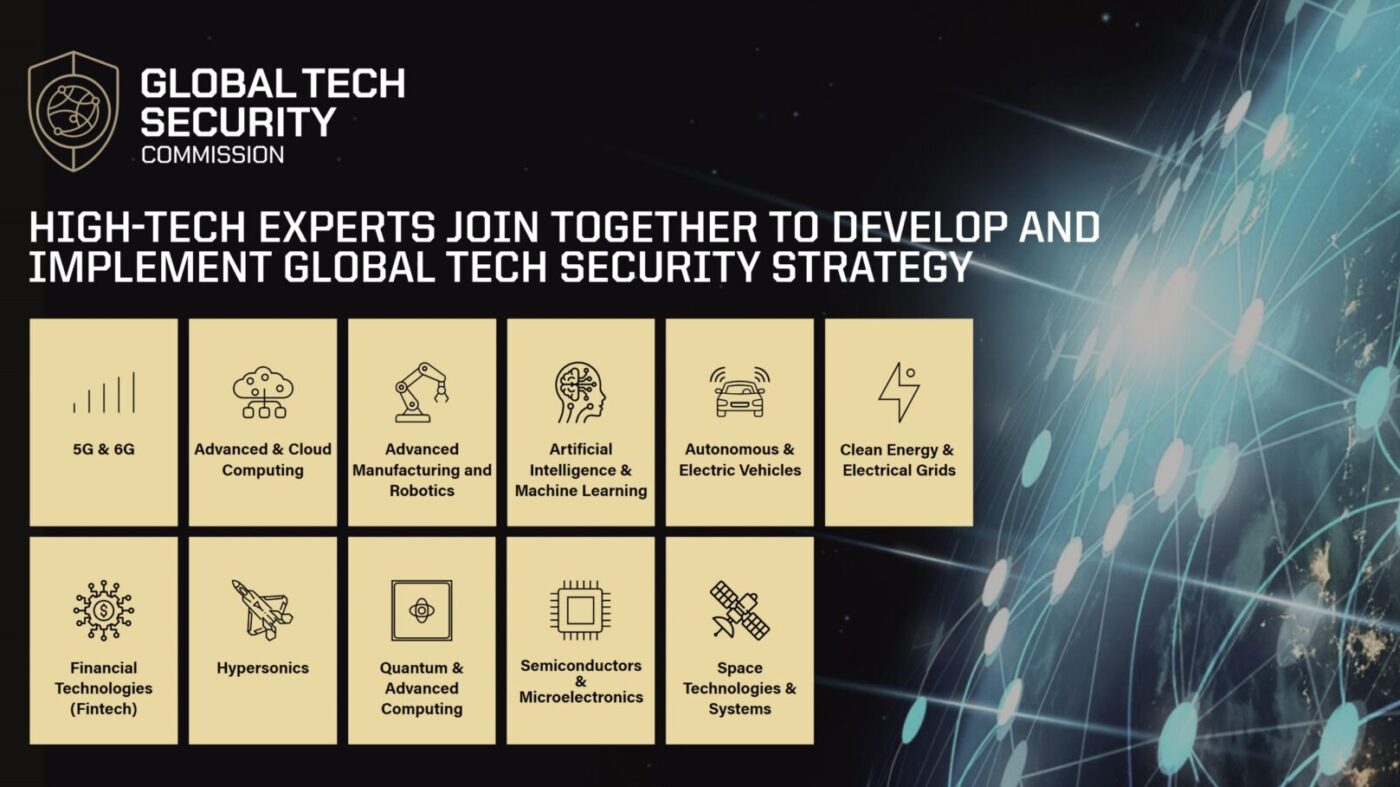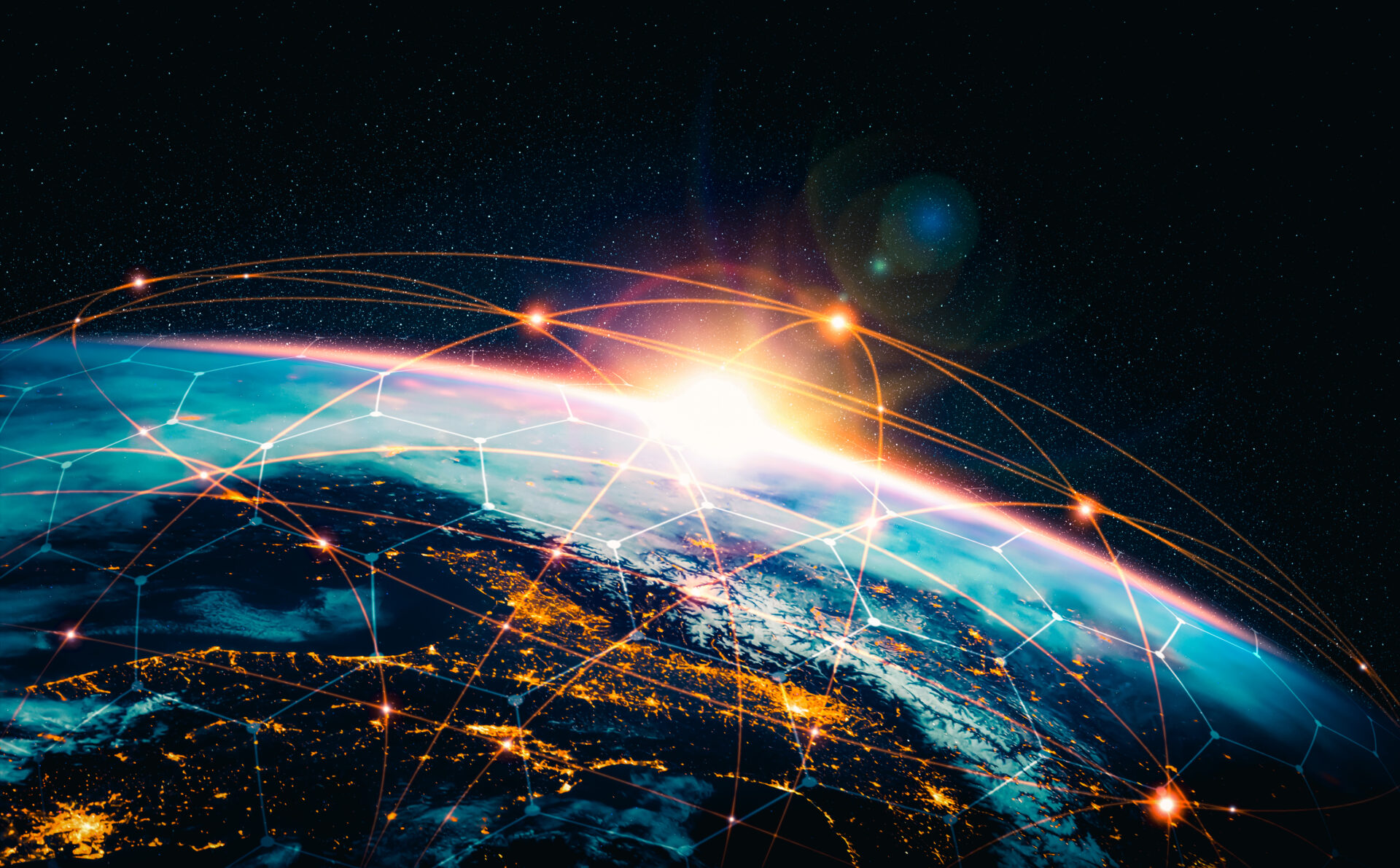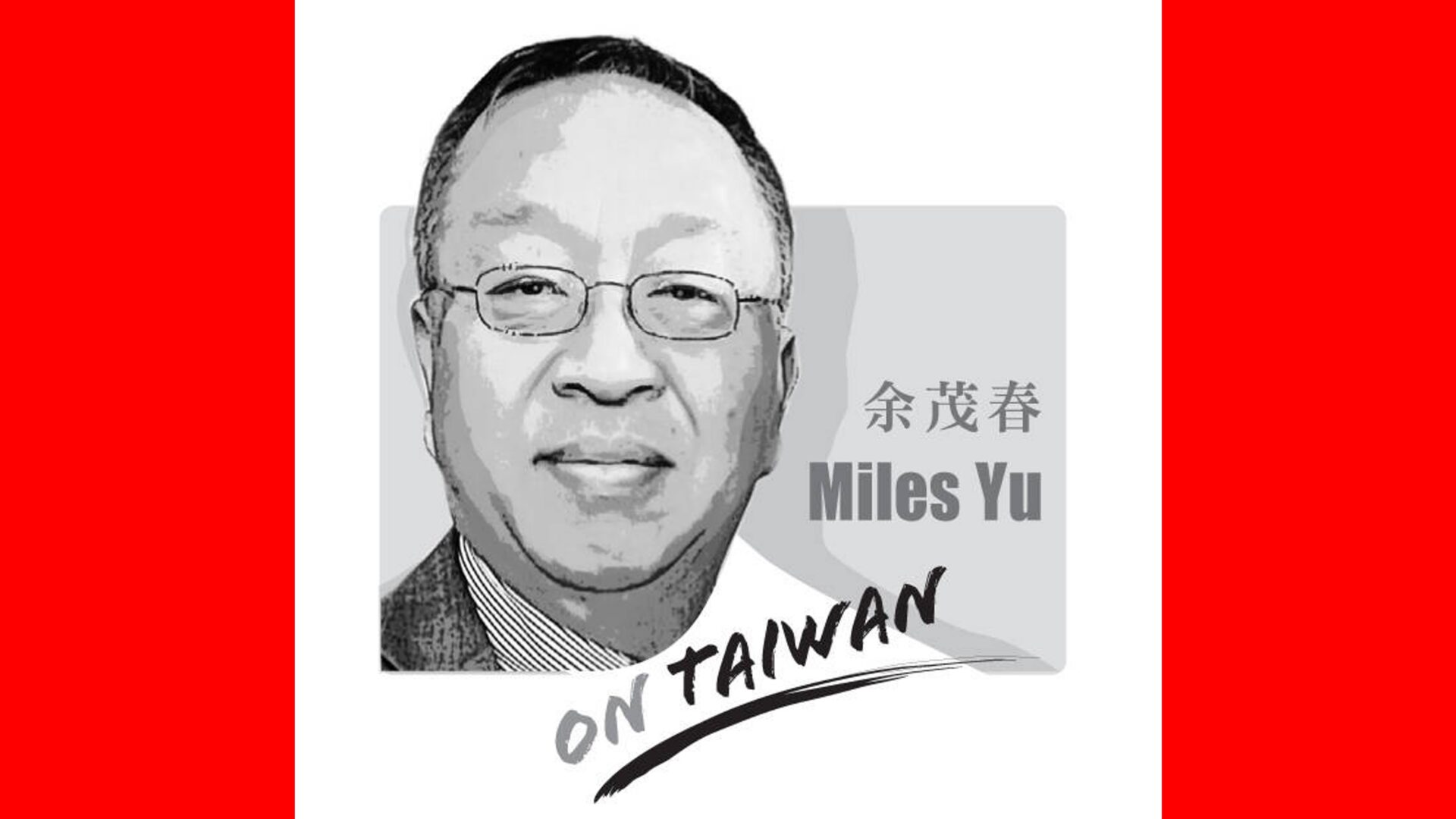
World’s Foremost Security Experts in Critical and Emerging Technologies Bolster Leadership of Global Tech Security Commission
Krach Institute for Tech Diplomacy at Purdue
11.02.23High-Tech Leaders to Develop and Implement the
Global Tech Security Strategy to Safeguard Freedom
WASHINGTON, D.C. November 3, 2023 – Today, the Global Tech Security Commission (GTSC), a worldwide network of multi-sector leaders developing the definitive Global Tech Security Strategy to safeguard freedom from techno-authoritarian threats, named 11 of the world’s foremost security experts in critical and emerging technologies as Tech Sector Commissioners. Their expertise spans technology sectors critical to freedom, prosperity and international security, including 5G and 6G; advanced manufacturing and robotics; artificial intelligence (AI) and machine learning; autonomous and electric vehicles; clean energy and electrical grids; cloud computing; financial technologies; hypersonics; quantum and advanced computing; semiconductors; and space technologies and systems.
The new Technology Commissioners are:
- 5G and 6G: Robert Spalding, Retired U.S. Air Force (USAF) Brigadier General; Former Defense Attaché to China; Former Senior Director for Strategic Planning, National Security Council, White House; Founder and CEO, SEMPRE.ai
- Advanced Manufacturing and Robotics: Tom Lupfer, Founder and President, Clarity Design Inc.
- Artificial Intelligence and Machine Learning: David Spirk, Former Chief Data Officer, U.S. Department of Defense, U.S. Special Operations Command; Senior Counselor, Palantir
- Autonomous and Electric Vehicles: Matt Blunt, 54th Governor of Missouri; President of the American Automotive Policy Council; Former Naval Officer
- Clean Energy and Electrical Grids: Frank Fannon, Former Assistant Secretary of State for Energy Resources
- Cloud Computing: Marcus Jadotte, Vice President, Government Affairs and Public Policy, Cloud, Google; Former Assistant Secretary of Commerce for Industry & Analysis, International Trade Administration
- Financial Technologies: Erik Bethel, Former U.S. Executive Director, World Bank
- Hypersonics: Daniel DeLaurentis, Professor of Aeronautics and Astronautics, Purdue University; Chief Scientist for Department of Defense’s Systems Engineering Research Center
- Quantum and Advanced Computing: Jake Taylor, Former Assistant Director for Quantum Information Science and founding Director of the National Quantum Coordination Office, White House Office of Science and Technology Policy
- Semiconductors: Thomas Sonderman, CEO, SkyWater Technology Foundry
- Space Technologies and Systems: Dan Goldin, Longest-Serving Former NASA Administrator (‘92 to ‘01)
“The strategic importance of space and near-space technologies for the U.S. cannot be overstated, as it is impossible to envision U.S. national security and economic prosperity without a commitment to ensuring access to space,” said Dan Goldin, Commissioner for Space Technologies and Systems. “If we fail to lead all aspects of space, including satellite communications, reconnaissance, surveillance, natural resource exploration and acquisition, zero-gravity manufacturing, earth observation, lunar and cislunar exploration and operations, planetary exploration and operations and astrophysical observations, the result would have dire implications for many U.S. and industries—such as commercial, financial services, health care, and media—as well as military operations.”
“As the U.S. auto industry continues to drive the truly transformational technologies in electric vehicles and automated driving, we must work diligently, across sectors to ensure that these new technologies are properly safeguarded,” said Matt Blunt, Commissioner for Autonomous and Electric Vehicles. “The work of the Global Tech Security Commission will be a catalyst in bringing U.S. technology leaders together to not only guard against existing threats to our cutting-edge technology, but also formulate proactive strategies to combat adversarial threats to America’s future technological leadership.”
“The U.S. cannot assume any advantage in the AI arms race,” said David Spirk, Commissioner for AI and Machine Learning. “To keep up with pacing threats including China, Washington must both accelerate the innovation pipeline and build end-user confidence in AI through robust testing and validation offered by the private sector. Failure to do so would put the U.S. at a severe disadvantage.”
For more information on GTSC Tech Commissioners, including quotes and biographies, visit https://globaltechsecurity.com/.
+++
About the Global Tech Security Commission
The Global Tech Security Commission aims to unite allied nations, harness private sector innovation and establish a Global Trusted Tech Network to foster and safeguard trusted technologies. Its mission involves devising holistic offensive and defensive strategies for tech sectors deemed crucial for national security by the White House and incorporating them into a Global Tech Security Strategy.
The GTSC consolidates transatlantic and Indo-Pacific allies against growing worldwide authoritarianism on critical tech issues. It is formed of an international group comprising experts in critical tech sectors, countries and strategic sectors leading expert advisory councils. Co-chairs Keith Krach, former U.S. Under Secretary of State and DocuSign CEO, and Kersti Kaljulaid, former President of Estonia and Chair of the Three Seas Initiative, lead the Commission.
For updates on the GTSC, visit globaltechsecurity.com. Media inquiries should be directed to KrachInstitute_press@prf.org.
Related Posts

article
The Era Of ‘Tech Diplomacy’ Is Here
Technology is the new frontier of international relations. The interaction is bi-directional: technology is defining diplomatic matters while diplomacy is also influencing the development and deployment of technology. Take semiconductors as an example. This is a technology that forms the foundation of digital economy, national security, and productivity in almost all industries. Global supply chain in the semiconductor industry is shaping U.S. foreign policy. Conversely, America’s diplomatic effort has been redefining the supply chain. Tech diplomacy is different from science diplomacy, which became a key pillar for the U.S. and other countries since World War II. Scientists participated in treaty negotiations, engaged in bilateral summits and served as attachés at embassies. Primary topics included nuclear proliferation, super-collider construction, human space exploration and environmental science.

By: Miles Yu
article
Miles Yu On Taiwan: China’s lessons—and fears—from the Wagner revolt in Russia
For over a century, tumultuous events thousands of miles away in Russia have impacted China profoundly. Mao Zedong (毛澤東) famously said that the cannon sound of the October Revolution brought Marxism-Leninism to China. Now Xi Jinping (習近平) fears that last month’s Wagner revolt may provide a model for the Chinese Communist Party’s undoing.